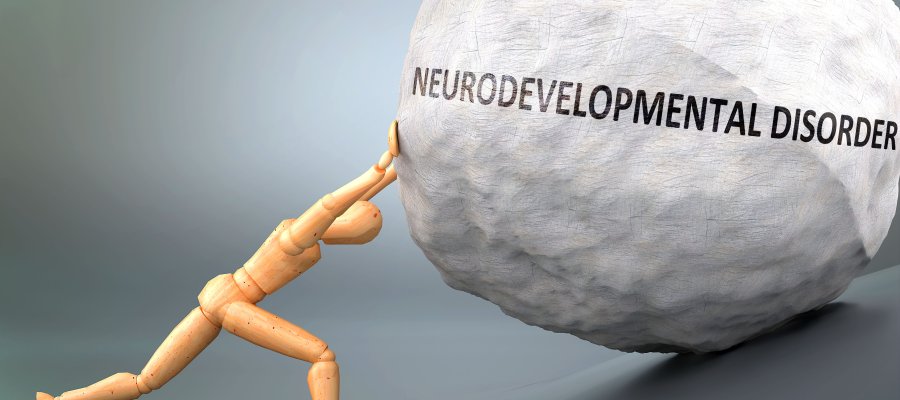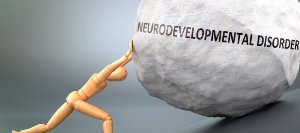Neurodevelopmental Disorders Therapist in Creve Coeur, MO
If you believe you or someone you know may be experiencing a neurodevelopmental disorder, visit Success Health System LLC. Our board-certified doctor, Dr. Moses Tabe Ambilichu, M.D., along with our specialists, provides testing and diagnostic evaluations to identify neurodevelopmental disorders and guide you in understanding effective ways to manage them. With a compassionate approach, we offer personalized treatment plans and ongoing support to help improve quality of life and ensure optimal development. Reach out today to take the first step toward comprehensive care and lasting solutions. Contact us or for more information schedule an appointment online. We are conveniently located at 12401 Olive Boulevard, Suite 206, Creve Coeur, MO 63141.


Table of Contents:
What do you mean by neurodevelopmental disorders?
What are the most common neurodevelopmental disorders?
How are neurodevelopmental disorders diagnosed?
Are neurodevelopmental disorders also a mental illness?
Neurodevelopmental disorders are described as disabilities that are associated with the functioning of the neurological system and brain. These disorders can affect the brain and behavior of the individual, as well as the memory or ability to learn.
These impairments of cognition can make it difficult for individuals to communicate, have behaviors that are not considered normal, and have motor skills underdeveloped as a result of abnormal brain development.
Some of the most common developmental disorders that we see today include:
• ADHD
ADHD is one of the most common developmental disorders. Is it diagnosed normally early on in childhood and often can last into adulthood? Children who are diagnosed with ADHD may have issues paying attention, controlling impulsive behaviors, or being overly active.
• Learning disabilities
Learning disabilities are considered genetic and/or are found by neurobiological factors that can alter brain functioning in a manner that affects one or more of the cognitive processes related to individual learning.
• Intellectual disability
Involves issues with general mental abilities that can affect functioning in two areas: intellectual functions which is how you learn; problem-solving and offering judgment and adaptive functioning which involves your daily activities with communication and independent living.
• Cerebral palsy
Cerebral palsy affects a person’s ability to move and maintain their balance and posture.
• Autism
Autism is related to the brain’s development which can impact how a person may perceive and socialize with others, it can also cause problems with social interaction and communication between them and others.
• Seizures
Seizures happen when a burst of uncontrolled electrical activity between the brain cells ends up causing temporary abnormalities in muscle tone or movements, behaviors, sensations, or state of awareness.
• Stuttering or stammering
Stuttering is also called stammering, which is a speech disorder that involves frequent and significant problems with normal fluency and flow of an individual’s speech. People that stutter or stammer, know what they are trying to say, but they have issues trying to say it.
• Moderate to profound hearing loss
Is an individual who has issues hearing anything less than a certain decibel. Many with moderate to profound hearing loss will not hear everyday sounds without the help of amplification or loud sounds.
• Blindness
Blindness or vision loss cannot be corrected with glasses or contact lenses. It is where you cannot see anything, even light.
• Other developmental delays
Neurodevelopmental disorders are diagnosed via a neurodevelopmental exam which provides information about an individual’s learning, growth, and development over time. A team of specialists will carry out several tests to determine if you have a neurodevelopmental disorder, these tests may include the following:
• Developmental tests
• Neurologic exams
• Physical exams
• Brain imaging
• Lab tests
These tests help the specialists to better understand how the disease has affected your health and which treatments are most likely to help with them. These tests can also help to predict how the disease will progress, so the team can set specific goals for the individual diagnosed.
The main difference between a neurodevelopmental disorder and a mental illness is the origin of the condition. Individuals who have been diagnosed with a neurodevelopmental disorder are three to six times more likely than others to suffer from mental disorders including anxiety, depression, and antisocial behavior.
Usually, these additional mental illnesses are less likely to be recognized or diagnosed and treated correctly due to neurodevelopmental disorders.
An individual who has been diagnosed with a developmental disorder does not have the same cognitive ability to understand certain thoughts as individuals who have been diagnosed with just a mental illness. As well, neurodevelopmental disorders are lifelong disabilities that cannot be cured, while mental illness may not be lifelong, as some may be chronic and temporary or have recurrent episodes, but not lifelong.
For more information, contact us or schedule an appointment online. We are conveniently located at 12401 Olive Boulevard, Suite 206, Creve Coeur, MO 63141. We serve patients from Creve Coeur MO, Overland MO, Bridgeton MO, Clayton MO, Kirkwood MO, Chesterfield MO, Clarkson Valley MO and surrounding areas.

Check Out Our 5 Star Reviews


Additional Services You May Be Interested In
▸Addiction Treatment
▸ADHD Treatment
▸Anxiety Treatment
▸Bipolar Disorder
▸Depressive Disorders
▸Mental Disorder
▸Obsessive Compulsive Disorders
▸Psychotic Disorders
▸PTSD Treatment
▸Phobias and Fears Therapist
▸Psychiatrist
▸Substance Disorder
▸Social Anxiety Psychiatrist
▸Medication Management
▸Psychotherapy
▸Exomind TMS – Columbia
▸Spravato – Independence

Additional Services You May Be Interested In
▸Addiction Treatment
▸ADHD Treatment
▸Anxiety Treatment
▸Bipolar Disorder
▸Depressive Disorders
▸Mental Disorder
▸Obsessive Compulsive Disorders
▸Psychotic Disorders
▸PTSD Treatment
▸Phobias and Fears Therapist
▸Psychiatrist
▸Substance Disorder
▸Social Anxiety Psychiatrist
▸Medication Management
▸Psychotherapy
▸Exomind TMS – Columbia
▸Spravato – Independence





